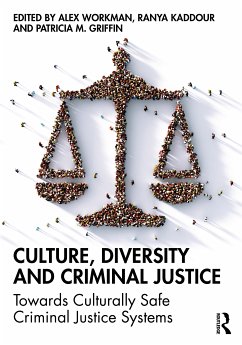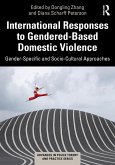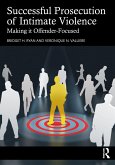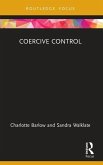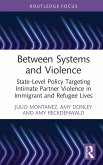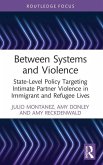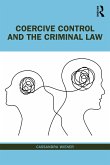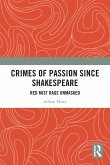This ground-breaking textbook engages readers in conversation about responding to the effects of diversity within formal criminal justice systems in Westernized nation-states. Moving past a binary concept of diversity that involves only race and gender, this book elaborates upon a wide variety of other forms of diversity, including sexuality, disability, mental health, gendered identity, refugees, the young and the ageing, and culturally and linguistically diverse (CALD) peoples, with an awareness of how intersecting identities make some people more vulnerable than others.
With reported statistics providing only a snapshot of the incongruent experiences of diverse minorities in contact with criminal justice systems, there is a clear need for nuanced training and accessible information regarding diversity in criminal justice. The book examines diversity in terms of both criminal justice agents and justice-involved individuals such as people in prison, those convicted of crimes, the victimized, and the community. This volume brings together a group of international scholars to articulate on each of the identified populations, examining the effect of culture and diversity on criminal justice outcomes and outlining how those diverse perspectives can improve criminal justice service delivery overall.
Incorporating case studies, reflections, and activity questions, this book is a valuable resource for courses in criminology, criminal justice, corrections, and law enforcement, and is ideal for any program focusing on multiculturalism and diversity in criminal justice. Scholars, researchers, and professionals will also benefit from the analysis.
With reported statistics providing only a snapshot of the incongruent experiences of diverse minorities in contact with criminal justice systems, there is a clear need for nuanced training and accessible information regarding diversity in criminal justice. The book examines diversity in terms of both criminal justice agents and justice-involved individuals such as people in prison, those convicted of crimes, the victimized, and the community. This volume brings together a group of international scholars to articulate on each of the identified populations, examining the effect of culture and diversity on criminal justice outcomes and outlining how those diverse perspectives can improve criminal justice service delivery overall.
Incorporating case studies, reflections, and activity questions, this book is a valuable resource for courses in criminology, criminal justice, corrections, and law enforcement, and is ideal for any program focusing on multiculturalism and diversity in criminal justice. Scholars, researchers, and professionals will also benefit from the analysis.
"This book is a powerfully written, engaging exploration of intersectionality and culturally safe practices. My first response, on reading was, to say, "Wow, this book has so many potential applications and I'll be recommending it to the many organisations I work with!". It is likely to be if value to new scholars, seasoned academics, policymakers, and practitioners alike. In many settings, we grapple with how to ensure that our approaches are inclusive and non-discriminatory. This book provides a framework likely to enhance critical thinking that will cause reflection and meaningful change across multiple sectors, including criminal justice. Highly recommend."
Dr. Tracey Price-Allan, Director of MyCorZ Consultancy Ltd, Board Member of the Global Law Enforcement and Public Health Association (GLEPHA)
"While it is questionable whether the criminal system can ever be culturally safe, this book makes an important contribution to critical understandings of cultural threats to marginalised people who are criminalised. It brings together a diverse field of scholars who interrogate the nature of criminalisation for oppressed peoples and make recommendations for systemic change. People in the criminalising system are often typecast as 'suspects', 'offenders' or 'inmates'. This book shines a light on their intersectional humanity and how the system intrudes on their, and our, basic human rights. Finally, this book addresses the toxic cultures within criminalising agencies that contribute to structural oppression within and outside of the agencies. This is a valuable resource for academics and students who want to learn about systemic bias and the harms it wreaks on individuals and society."
Professor Thalia Anthony, Professor of Law, University of Technology Sydney
"Understanding the underlying and implicit role diversity plays across criminal justice systems is vital in creating fair and just societies. This book provides a nuanced and in-depth analysis on working towards this shared goal and aspiration, whilst holding existing structures and systems accountable to being much better in its approach and application. Such diverse contexts and lived experiences can create cultural safe perspectives and practices as privileged across the various narratives within this edited collection."
Professor Jioji Ravulo, The University of Sydney
Dr. Tracey Price-Allan, Director of MyCorZ Consultancy Ltd, Board Member of the Global Law Enforcement and Public Health Association (GLEPHA)
"While it is questionable whether the criminal system can ever be culturally safe, this book makes an important contribution to critical understandings of cultural threats to marginalised people who are criminalised. It brings together a diverse field of scholars who interrogate the nature of criminalisation for oppressed peoples and make recommendations for systemic change. People in the criminalising system are often typecast as 'suspects', 'offenders' or 'inmates'. This book shines a light on their intersectional humanity and how the system intrudes on their, and our, basic human rights. Finally, this book addresses the toxic cultures within criminalising agencies that contribute to structural oppression within and outside of the agencies. This is a valuable resource for academics and students who want to learn about systemic bias and the harms it wreaks on individuals and society."
Professor Thalia Anthony, Professor of Law, University of Technology Sydney
"Understanding the underlying and implicit role diversity plays across criminal justice systems is vital in creating fair and just societies. This book provides a nuanced and in-depth analysis on working towards this shared goal and aspiration, whilst holding existing structures and systems accountable to being much better in its approach and application. Such diverse contexts and lived experiences can create cultural safe perspectives and practices as privileged across the various narratives within this edited collection."
Professor Jioji Ravulo, The University of Sydney

